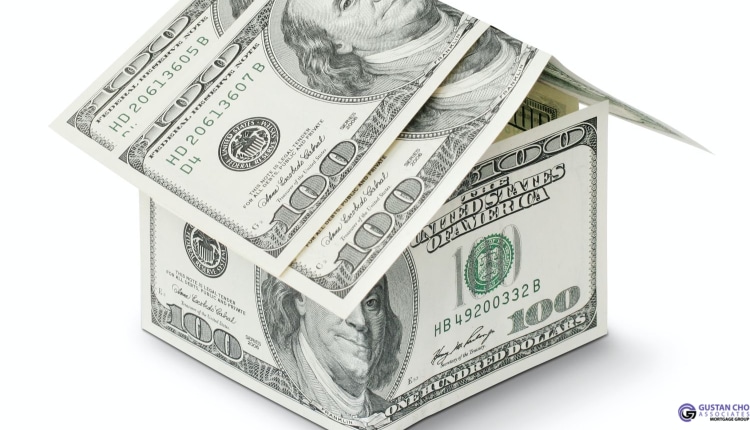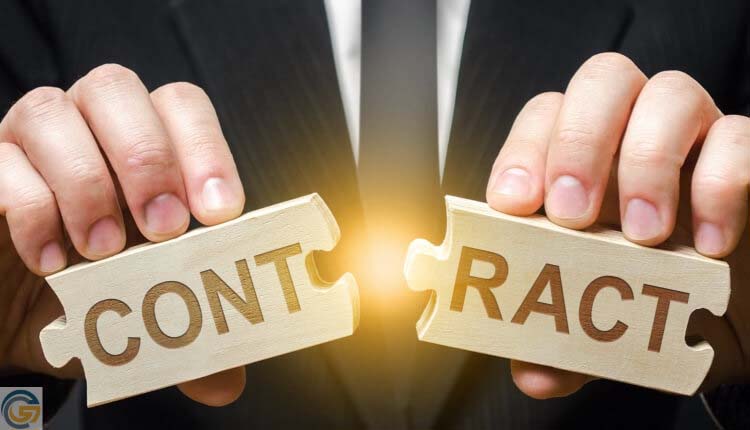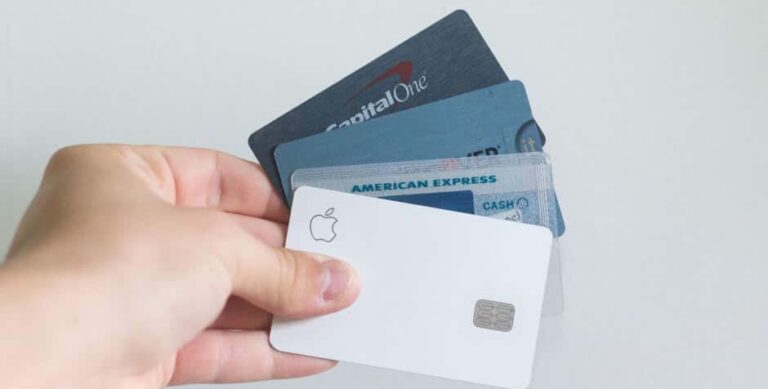Cash-To-Close Mortgage For Closing Home Purchase
Cash-to-close means the cash required by the homebuyer to bring in to closing on a home purchase. Mortgage guidelines state that only verified funds can be used for the purchase or refinance of a home mortgage. All funds used in the mortgage process need to be documented.
Cash money is non-existent in the mortgage industry. Understanding the mortgage process is imperative for home buyers. This holds especially true for first-time homebuyers.
Many homebuyers are often confused with closing costs versus cash-to-close. They also get confused on the Loan Estimate versus Closing Disclosure. The mortgage process does not need to be stressful if borrowers understand the various steps of the mortgage process. It is the loan officer’s responsibility to educate their borrowers on the overall loan process at the very beginning. In the following paragraphs, we will cover what cash-to-close means in the mortgage process.
Importance of Communication Between Loan Officers and Borrowers During Mortgage Process
Failure to communicate with the borrowers is one of the biggest reasons for customer complaints in the mortgage business. If important information is not being conveyed to borrowers by their loan officers, the ending result can be major disappointment or borrowers walking away from the deal. Although the home buying process may be an enjoyable one and a great time for families, it is also stressful due to financial considerations.
Understanding Mortgage Terminology Cash-To-Close
Mortgage terms like cash-to-close, verified funds, pricing adjustments, mortgage locks, DTI, LTV, may be used daily by mortgage professionals but to most borrowers, it may sound Latin. It is the loan officer’s job to make sure that borrowers understand the basic terms, their meanings, it importance, and how it applies to them. Never assume that borrowers know it.
Cash-To-Close On The Loan Estimate Versus Closing Disclosure
Loan Officers need to explain to their borrowers what a Loan Estimate is and the difference between the LE versus CD. Many times figures in the Loan Estimate are overly disclosed. Explain to borrowers that the final numbers will be on the Closing Disclosure and NOT the Loan Estimate. The number one question borrowers have is what is the cash-to-close. The actual cash-to-close is not known until all figures are in. The title company needs to go over figures for both buyers and sellers to determine the actual cash-to-close. The actual cash-to-close will be on the Closing Disclosure. Speak With Our Loan Officer for Mortgage Loans
Understanding The Difference Between Closing Costs Versus Cash-To-Close
Here are examples of closing costs:
- Origination Fees
- Attorneys Fees
- Title Charges
- Recording and Transfer Stamps
- Appraisal
- Home Inspection
- Pre-Paid (Pre-Paid are escrow accounts)
- Discount Points
- One year homeowners insurance premiums
- Other third-party charges
Down Payment, Closing Costs and Cash-To-Close
All borrowers need to come up with down payment and closing costs. The down payment needs to be the borrower’s own funds. Down payments can be gifted by family members. Borrowers will be in charge of home buyers’ closing costs. However, they may be entitled to seller credits as well. Certain states like Illinois have property taxes paid in arrears.
Home sellers need to credit buyers the previous year’s property taxes. Homebuyers can use property tax proration credits for their down payment or closing costs.
However, buyers still need to show that they have verified down payment funds. Most home buyers do not pay closing costs out of pocket. Most of our borrowers at Gustan Cho Associates pay their closing costs with seller concessions or lender credit. Seller concessions and lender credit can only be used for closing costs and NOT down payment. Property tax proration credit can be used for BOTH down payment and closing costs.
Understanding Cash-To-Close and Closing Costs on Home Purchase Transactions
If you are in the market to buy a home, the phrase “closing costs” may be haunting you. The cost of doing business can add up quickly when it comes to buying a home. In this blog, we will clarify some common misconceptions surrounding closing costs and educate you on how to minimize your out-of-pocket expense when purchasing a home. Gustan Cho Associates are experts in mortgage lending. We offer advice on how to buy a home with as little out-of-pocket money as possible.
How Much Do Homebuyers Need For Cash-To-Close And Closing Costs on Home Purchase
Closing costs are an ugly part of the mortgage process. Mortgage closing costs can vary based on your location, price of a home, credit score, type of loan product, as well as a couple of other variables. As if saving for your down payment wasn’t difficult enough, you also need to budget for closing costs. Obtaining a mortgage is not free and before you get your keys, many parties of the transaction must be paid.
How Much are Closing Costs and Cash-To-Close on a Home Purchase
Typical closing costs can range anywhere from 3% to 6% of the purchase price of the home. This is a general rule of thumb that should help you budget accordingly but we encourage you to reach out to our team today to get a better understanding of your specific closing costs requirements.
So, if you are buying a $200,000 home, your closing cost could range from $6000-$12,000. In a 2020 survey, it was estimated that the average closing costs were roughly $6000 across the nation.
But certain states have higher closing costs and added transfer taxes which could increase this figure. For example, Washington state and Florida do not have a state income tax, but they do have higher real estate transfer taxes. Talk To Our Loan Officer for Mortgage Loans
When Will Homebuyers Know Closing Costs and Cash-To-Close
Your mortgage team should provide you with a closing cost estimate when applying for a mortgage. Every lender is required by law to provide you with a “loan estimate” within three days of completing a full mortgage application. The loan estimate was put into effect on October 5th, 2015, replacing the “good faith estimate”. The loan estimate is easier to read and spell out the cost of a mortgage transaction in a clear and understandable document.
Closing Costs and Cash-To-Close Listed on Loan Estimate And Closing Disclosure
The loan estimate holds the lender accountable so fees cannot be raised throughout the mortgage process. At least three days before your closing, your lender is required to send you a “closing disclosure” (often referred to as the CD).
On this closing disclosure, you will see a side-by-side comparison of the original fees disclosed to you on the loan estimate and the actual fees for closing.
There are specific threshold requirements the lender must abide by concerning fees. This will prevent any lender from charging additional fees not allowed by law. The loan estimate and closing disclosure are put in place to protect the consumer from any illegal costs.
Breakdown of Closing Costs and Fees and Final Cash-To-Close
Many of our clients call and ask if there is a way around closing costs. Unfortunately no, closing costs are part of the mortgage transaction. The mortgage process is complex and there are many moving parts. A few basic parts of the transaction include the appraisal, title, property taxes, and insurance. The appraiser must be paid which is a closing cost, title insurance is not free and must be paid as part of the mortgage transaction. You must make sure your property taxes are up-to-date and pay for homeowners insurance in advance. All of these are closing costs that add up quickly. Below are a few examples of other closing costs you may be responsible for.
Application Fee
Application fee. A mortgage application fee is rarely used in modern times. But a lender may charge you an upfront fee to complete your mortgage application.
Attorney’s Fee
Attorney’s fee: his is a common fee in states such as Illinois. An attorney will help facilitate the real estate transaction from start to finish. You have the right to pick any attorney you would like to use, and their fees will vary. This is a service you can shop around for.
Credit Report Fee
Credit report fee: A lender will charge you a fee to verify your tri-merged credit report. Within this charge, there are other services rendered. Such as undisclosed debt monitoring which will let your lender know if your credit was pulled during the mortgage process. The lender must verify if any added debts must be included in your debt to income ratio.
Earnest Money
Earnest money down: This is technically not a closing cost as it is considered a deposit. The amount of earnest money put down at the beginning of the mortgage transaction will come off the final figures you need to close on your home. If you decide to pull out of the transaction or are denied a mortgage, the seller usually keeps your earnest money.
Mortgage Insurance Premium
Mortgage insurance premiums: Depending on the loan product you select, there may be upfront mortgage insurance costs. For example, an FHA loan requires a 1.75% upfront mortgage insurance premium based on the loan amount. You will also have monthly mortgage insurance on all transactions that do not have a 20% (or greater) down payment. (Mortgage insurance is not applicable on VA loans.
Flood Determination Fee
Flood determination fee: Every mortgage transaction will have a small fee to determine if your property is located in a flood zone. While this fee is not very expensive, it applies to every mortgage transaction. Even if you live on the top floor of a condo building, you will still pay the flood certification fee. If you are located in a flood zone, you will have an additional cost of added flood insurance. Flood insurance can be very expensive depending on the area. It is important to understand the added cost of being in a flood zone. Confirm with your realtor if a home is in a flood zone or not before viewing a property.
Homeowners Association Fees
Homeowner association fees: If the property you are buying is located in a community that has association dues, you will have association transfer fees added to your closing costs. These can range from just a couple of dollars all the way up to a few hundred dollars. The most expensive I have seen is $500 for a high-rise condo in Chicago. The lender must verify the association has proper insurances and reserves to qualify for mortgage lending. This cost is passed on to you as the buyer.
Homeowners Insurance
Homeowners insurance: For the entire time, you have a mortgage loan on your property, you will be required to have proper homeowners insurance coverage. This is a service you can shop for as long as you have the minimum required coverage. It is important to shop around for homeowners insurance quotes as this cost can range dramatically. If your lender finds you canceled your homeowner’s insurance policy, they will add “forced placed” insurance to your monthly payment. This coverage is usually more expensive, so make sure you keep proper coverage on your new home.
Title Insurance Fees
Title insurance fees: Lender’s title insurance is an upfront cost that ensures you are not responsible for any liens attached to the property prior to the date you own the home. Title insurance is required in all 50 states and the cost of title insurance varies dramatically. Typically, the seller chooses the title company, so this fee is something you have very little control over. Title fees may also include a recording fee and a survey fee depending on your area.
Loan Origination Fees
Origination fees: Origination fees are fees paid directly to your lender. Since mortgage lending is highly competitive, most mortgage lender fees are close to one another. If a lender has high upfront fees, they may not last long in this competitive market.
Appraisal Fee
Appraisal fee: An appraisal fee is your responsibility and is typically collected before the appraisal is completed. The appraisal will determine the value of your home. A lender may only use the purchase price or appraised value, lower of the two when determining the value of your home for qualification purposes.
Closing Costs on Loan Estimate are Overly Disclosed
The list above is common fees that are part of the real estate transaction process. Other fees may be applied. Based on the sheer number of fees, they add up very quickly. Above and beyond the down payment and closing cost requirements, you may also be required to have mortgage reserves. Reserves are defined as money left over in your bank account(s) after paying your down payment and closing costs. One month of reserves is equivalent to one month of your total mortgage payment (including taxes, insurance, and any association dues). Many loan programs require at least one month of reserves. So, saving as much money as possible will help your mortgage qualifications dramatically. Click here to apply for a mortgage
Paying Closing Costs and Fees on Home Purchase With Seller Concessions
Below we will go over some strategies to lower the out-of-pocket expense of buying a home. Since the real estate market is on fire and we are currently in a seller’s market, asking for seller concessions can be difficult. It is not uncommon to offer over the asking price and ask for a seller concession. We have seen this process over and over. Please keep in mind, if you go down this route, the home must appraise for the higher offered price. As stated earlier in this article, a lender must base your loan to value on the purchase price or appraised value, lower of the two.
Seller Concessions
The most effective way of lowering your out-of-pocket expenses when purchasing a home is to ask the seller for seller concessions. Seller concession is a fancy term for seller-paid closing costs. As the buyer, you are responsible for the minimum down payment requirements for the type of loan you select. The seller can pay up to 3% of the purchase price on conventional mortgage loans (with less than a 10% down payment), 6% on FHA mortgage loans, and 4% on VA mortgage loans. Depending on the cost of the home you are buying, these thresholds can pay a portion or even all of your closing costs, leaving you responsible for just the down payment. If you are a veteran, no down payment is required to purchase a home. If you ask for seller concessions, many veterans are able to close with no money out of pocket.
Understanding Closing Costs and Fees on Home Purchase
What are closing costs? Whether buying a new home or refinancing a current home loan, there are costs associated with any home closing transaction. How Much Are Closing Costs? Closing costs vary from state to state, county to county, city to city. There are states where closing costs are much more than others. For example, in general, are much higher in the state of Florida than in the state of Illinois. Some states not only charge transfer stamps but also intangible taxes as well. The higher the loan amount is, the more the state taxes are. Whether it is a home purchase loan, an FHA streamline loan, a refinance mortgage loan, or a cash-out refinance mortgage loan, borrowers will have costs on any new mortgage closing transaction.
Closing Costs Explained
Closing Costs Explained: Closing costs are the costs and fees that a home buyer or homeowner pays at closing when they buy their new home or refinance their current loan to a new mortgage loan. These costs are fees and costs that are charged by lenders and all third-party vendors such as title companies, attorneys, insurance, and government agencies. A home closing is when the title to the property is transferred from the home seller to the home buyer. Or when the current homeowner transfers their mortgage loan to another lender on a refinance mortgage transaction.
Costs Associated on a Home Purchase
On a home purchase transaction, there are fees and costs home buyers are responsible for and sellers are responsible for. On a home refinance mortgage loan transaction, the homeowner is responsible for all costs incurred in the home refinance closing. On a home purchase transaction, the home buyer needs to come up with the down payment of the home purchase plus the costs that are the buyer’s costs and fees.
What Is Included in Closing Costs?
As mentioned earlier, it is rather difficult to determine the exact amount the home buyer or homeowner needs to come up with costs to close. It is not like coming up with a down payment on a home purchase such as HUD requiring a 3.5% down payment on an FHA home purchase loan. Conventional loans requiring 5% on a down payment on a home purchase.
How Much Are Closing Costs
Closing costs vary anywhere between 2% to 6% on the value of the home. The big range of costs to close is because every city, county, state the property is located has different fees and costs. Costs of home closings also depend on the property type. Condominium purchases have higher costs than single-family home purchases.
Examples Of Closing Costs
Examples of closing costs include the following:
- origination fees
- credit report fees
- underwriting fees
- processing fees
- appraisal fees
- home inspection fees
- survey costs and fees
- title insurance costs
- title search fees
- pre-paid where escrows need to be set up
- pest and termite inspection fees
- attorney’s fees
- government recording fees
Any other fees and charges to close a home loan is considered closing costs.
How Much In Closing Costs Would You Pay?
The mortgage loan originator can give borrowers a rough estimate of how much closing costs will be. The LE, Loan Estimate, will disclose all potential closing costs: Closing costs will range anywhere between 2% to 6% depending on the state the property is located. On a smaller loan amount, borrowers can expect the 6% range were on a larger loan amount the closing costs will be more towards the 2% range. For Example, closing costs on a $100,000 home purchase may be $5,000 or 5% whereas closing costs on $500,000 may be $10,000 or 2% of the home purchase price.
What If I Cannot Come Up With Closing Costs?
Many first-time homebuyers are limited with coming up with their down payment on their home purchase. FHA loans require a 3.5% down payment on a home purchase. Conventional Loans require either a 3% down payment for first-time homebuyers or a 5% down payment for seasoned home buyers. Most homebuyers do not have to worry about coming out of pocket for closing costs. This is because most home sellers will give home buyers a seller’s concession towards home buyers’ closing costs. If the seller is not willing to give a seller concession, lenders can give the home buyer a lender’s credit towards the borrower closing costs.
How Do Sellers Concessions And Lenders Credit Affect Cash To Close And How Does It Work?
A seller’s concession towards home buyers’ closing costs is when a home seller offers to pay for part or all of the home buyers closing costs. Why would a home seller do that? If a home seller wants a net bottom price of $100,000 for their home, the seller can inflate the purchase price to $104,000 and give the home buyer a $4,000 seller’s concession. The home buyer can use all of the seller’s concessions on closing costs only and cannot use it towards the down payment. Any overage in sellers’ concessions needs to go back to the home seller. Make sure not to get too much sellers concessions where it is wasted. The overage seller’s concessions cannot be given to the home buyer in the form of cash or any other type of value. Click here to get more detail about cash to close
Lender With No Overlays on Government and Conventional Loans
For more information on this topic or any other mortgage/real estate-related questions, please contact us at Gustan Cho Associates at 800-900-8569 or text us for faster a response. Or email us at gcho@gustancho.com. Gustan Cho Associates has a national reputation of being a one-stop mortgage shop. In the event, if a home seller cannot or is not willing to give a seller’s concession, the home buyer can get a lender’s credit towards closing costs.
Lender credit can be offered by lenders for a higher mortgage rate. The mortgage lender can cover part or most of the home buyers closing costs with a lender credit.
This is to having no lender overlays on government and conventional loans as well as having dozens of non-QM and alternative mortgage programs such as 12-month bank statement mortgages, asset-depletion loans, non-QM mortgages one day out of bankruptcy and foreclosure, and our P and L no doc stated income non-QM loan programs. The team at Gustan Cho Associates is available 7 days a week, evenings, weekends, and holidays.








